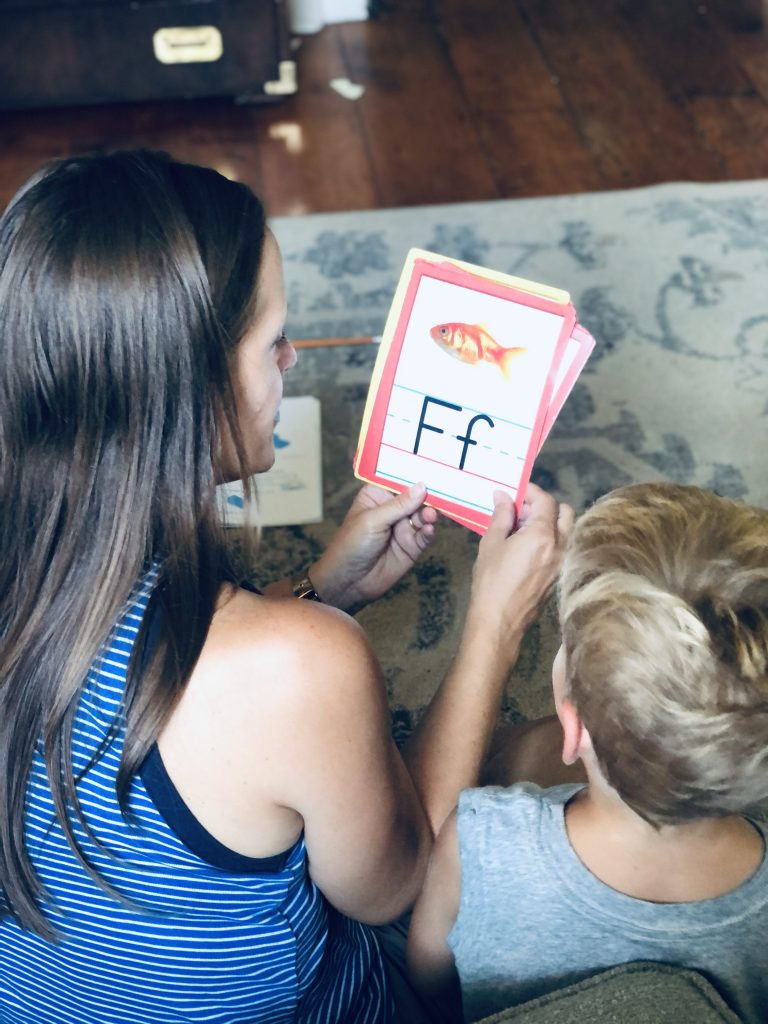Helpful Habits for Writing Well #2: Copying the Best Pieces from Great Authors

Think about it. How do we learn anything? We learn by imitation. Developing a habit of copying great authors will help your child be a better writer. Here are Helpful Habits for Writing Well #2: Copying the best pieces from great authors.
In my last post, I listed four helpful tools I have found that cover a lot of ground in teaching kids to write. Since our family is larger than the average size, these have been very helpful to me in minimizing the number of lessons while still developing the many sub-categories of writing: spelling, vocabulary, punctuation, handwriting, writing style, etc.
4 Helpful Habits for Writing Well
For a general overview, begin by reading A Simple Step-By-Step Guide to Homeschool Writing.
- Creating a Literate Environment– Reading quality literature of many genres.
- Copywork- Copying the best pieces from great authors.
- Narration- Reading or hearing a short story, verse, concept, or idea and expressing it back to someone in your own (first oral, then written) words.
- Notebooking– Journaling as a regular habit for life.

Helpful Habits for Writing Well #2 Copying the Best Pieces from Great Authors
How do we learn to do anything? We observe someone who is doing it!
In her book Think Outside the Classroom: A Practical Approach to Relaxed Homeschooling, Kelly Crawford writes,
“The grand goal is communication. Learning to communicate well will cover a multitude of deficiencies. How to achieve this? Copy others who do it well. It is the best way to learn almost anything!”
What should a child copy?
Copy passages of Scripture, Aesop’s Fables, poems, short stories or fairy tales, notable sections from each chapter of the fiction book they are reading.
Years ago, I found lists of copywork that I downloaded to our computer. I print them out as needed and put them in folders for our kids to copy daily. These lists are based on the amblesideonline.com book lists which I highly recommend! I usually choose copywork that coincides with the book that child is currently reading.

How much should a child copy?
A good rule of thumb is to copy one sentence for first grade, two sentences for second, three sentences for third, etc. or according to the child’s needs and abilities as you observe them.
How often should a child practice copywork?
Daily! When you copy the works of great writers as a daily habit for many years, you acquire a sense for how words flow together. You learn to discern the best ways of expressing thought.

What skills are covered in copywork?
I use copywork to teach spelling, punctuation, vocabulary, and more. It takes a relatively short period of time for them to complete and teaches them so much at the same time. When I correct our kids’ copywork, this is the time I use to review the following skills.
Handwriting
I think it is important to expect children to produce their neatest work. Keep in mind, however, that “neatest” will vary from child to child. Usually, a parent can easily tell if their child has rushed to get it done or carefully copied the piece. A good practice is to have the child read it back to you. If they can’t read their own work, it helps them to see on their own that others will have difficulty reading it as well.
Spelling
In looking at their work together, we find any misspelled words and circle them. They practice spelling them correctly a few times. This is also a good time to explain spelling patterns or rules that will be helpful to them. I have always thought that the best way to learn spelling (rather than long lists of isolated words) is to learn them in the context of them being used- not only in the context of a random written sentence, but in a written piece. It has been my observation that if copywork is a daily habit practiced for several years, kids learn to spell well.
Punctuation
As I correct their work, we also discuss punctuation. All sentences start with a capital letter, but what different punctuation can come at the end? And how do you know which one to use? How do you punctuate a direct quote? A quote within a quote? When should you use a comma? (Side note: Starting in 4th grade, I also use a Language curriculum to supplement punctuation and grammar skills.)
Vocabulary
What words in this passage are unfamiliar to you? Looking at the context, can you figure out the meaning? How would you use this word if you wanted to put it in a sentence?
Writing Styles.
Look at the different ways the author begins each sentence. How does the writer describe different scenes? What descriptive/persuasive/action words are used?
(Personal Note)
Realistically, I don’t go through all of these skills in any certain way, just as needed or as the opportunity presents itself. The simple act of copying quality writing regularly, when practiced over several years, teaches these concepts by itself.

Extensions of copywork.
Cursive
If it is important to you that your kids learn to write cursive, you can require copywork to be done in cursive once they have mastered the initial skills. I like our kids to be able to read and write in cursive so that they can read historical letters and documents.
Typing.
As soon as a child learns to type (we use free tools online), they can practice typing a portion of their copywork after they have written it by hand.
Dictation
To really see how well kids can spell, read aloud a selection from something they have memorized or written as a previous copywork and have them transcribe it. This will quickly show their skill level and areas that need improvement.
The thing I love most about copywork is that once the kids learn to write their letters, it is something they can do independently every day. It takes a relatively short amount of time AND they glean so much from practicing it. These are just a few ideas that I have used over the years. Leave a comment and let me know how your kids have benefited from copywork.
Was this post helpful to you? Leave a comment and let me know how if you have tried copywork with your kids and what works for you. I love hearing from other homeschool moms!
For more on this, see…
First, Helpful Habits for Writing Well #1: Creating a Literate Environment
and…
Helpful Habits for Writing Well #3: Narration
Also…
Helpful Habits for Writing Well #4: Notebooking
Pin it! Helpful Habits for Writing Well #2: Copying the Best Pieces from Great Authors







Thank you so much for sharing all this information about how to do copywork and how effective it can be. It puts to rest a lot of worry to teach everything to six kids because they are copying from excellent sources. It is challenging to juggle but you make it look so fulfilling. 🙂
You are welcome! I agree, copywork has been a lifesaver with having a several school age kiddos, but also, it surprised me how excellent a practice it is for them. They learn so much from it!